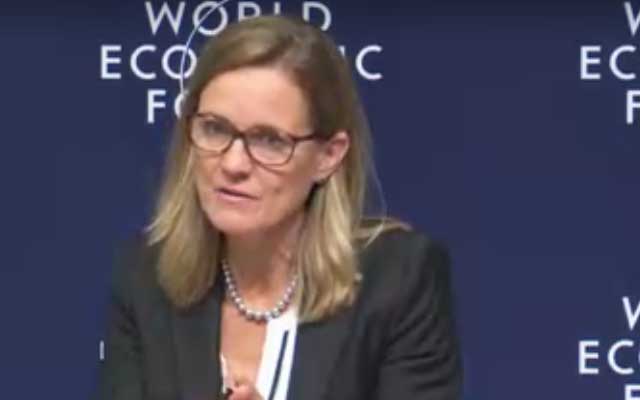
World Economic Forum, South African Government launch push to bridge digital divide
Currently, according to the International Telecommunications Union, 52% of South Africans use the internet.
The project, which is aligned to the Government’s National Development and South Africa Connect plans, will address the barriers that prevent universal internet access: infrastructure connectivity, affordability, skills and awareness, and relevant content; and also explore how Internet for All can better support the development of e-government services and SMEs.
Siyabonga Cwele, Minister of Telecommunications and Postal Services of South Africa, said, “The partnership with the World Economic Forum and local partners will help us accelerate our efforts to connect South Africans to the benefits of the internet. We are very pleased to welcome the World Economic Forum to South Africa to partner with the government on Internet for All. We value inclusive, multistakeholder efforts that will help bring many more South Africans onto the internet.”
Internet for All is a global project of the World Economic Forum that accelerates internet access and adoption through a multistakeholder platform.
Partner organizations such as Cisco, Digital Opportunity Trust, Ericsson, Huawei, Microsoft, MTN and Telkom work on this platform together with government, civil society, academia and international organizations to develop and scale new internet access models, attract and coordinate investments, and align programming.
Jabu A. Mabuza, Chairman of Telkom Group, said that the project “creates fertile ground for sustainable, accelerated, inclusive economic growth in Africa. We are pleased to partner with the World Economic Forum on the Internet for All initiative, where we can demonstrate our commitment to the promotion of the Fourth Industrial Revolution in Africa as a catalyst for inclusive growth.”
Country-level Internet for All platforms are already operating in Argentina, Rwanda and Uganda, where they have so far succeeded in developing major projects such as Rwanda’s Digital Ambassadors Program, a skills development activity that will train 5,000 trainers who will work in rural Rwanda to teach digital skills to 5 million people.
Janet Longmore, Founder and Chief Executive Officer of Digital Opportunity Trust, an organization involved in the programme, said that, "the Digital Ambassadors Program brings together government, the private sector and civil society to help citizens access a growing number of e-services in Rwanda, and to develop and support young women and men as digital champions and job creators. The programme is a collaborative response to community need, and offers a potential model for adoption by South Africa to close the digital divide.”
A new report outlines a methodology for determining the level of investment required to achieve internet for all, An Investment Framework for Digital Adoption.
The report will be previewed at the meeting. It will highlight the impact that policy choices can have on the feasibility of connectivity investments, and provide tools that companies and government can use to apply the methodology themselves.
The findings from the report will be applied to the Internet for All country-level programmes to help policy-makers better understand the various options and levers that can be used to accelerate internet access and adoption.
Alex Wong, Head of Global Challenge Partnership and Member of the Executive Committee at the World Economic Forum, said, “We congratulate the Government of South Africa and our Internet for All partner organizations for their leadership in launching the South Africa Internet for All project, as well as the progress in our other Internet for All country programmes. The new report, An Investment Framework for Digital Adoption, provides additional tools and examples of how internet for all can be achieved through public-private collaboration.”
Support Our Journalism
We cannot do without you.. your contribution supports unbiased journalism
IBNS is not driven by any ism- not wokeism, not racism, not skewed secularism, not hyper right-wing or left liberal ideals, nor by any hardline religious beliefs or hyper nationalism. We want to serve you good old objective news, as they are. We do not judge or preach. We let people decide for themselves. We only try to present factual and well-sourced news.







